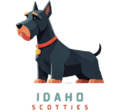Can dogs get the flu from humans? Learn about the risks, symptoms, and how to protect your pup from illness in this informative guide.
As pet owners, we often share our lives with our furry companions, from cuddles on the couch to long walks outside. But when flu season arrives, a common concern arises: Can dogs get the flu from humans? Understanding how influenza affects dogs, the risks of transmission, and how to protect them is crucial for every dog owner.
Understanding the Flu in Dogs vs. Humans
Influenza, commonly known as the flu, is caused by different strains of viruses that can affect various species, including humans and dogs. While humans typically suffer from strains such as Influenza A and B, dogs are affected by their own strains known as Canine Influenza Virus (CIV). The two most common CIV strains are:
- H3N8 – Originally found in horses before mutating to affect dogs.
- H3N2 – A strain that originated in birds and later infected dogs.
While these strains are specific to dogs, it raises an important question: Can dogs catch the flu from humans?
Can Dogs Get the Flu from Humans

Generally, dogs cannot catch the flu from humans in the same way we pass it to each other. Human influenza viruses are adapted to infect humans, while canine flu viruses are adapted for dogs. However, there have been rare cases where dogs have contracted respiratory illnesses from their owners, particularly strains of H1N1 (Swine Flu) and H3N2 that showed limited cross-species infection.
While such occurrences are uncommon, it’s still important to take precautions, especially if you’re sick. Just like humans, dogs have immune systems that can be weakened by exposure to new pathogens.
Symptoms of Canine Influenza
Even though dogs are unlikely to catch the flu from humans, they can still get infected with canine influenza from other dogs. If your dog has the flu, watch out for the following symptoms:
- Coughing (dry or wet)
- Sneezing
- Runny nose
- Watery eyes
- Fever (above 103°F or 39.4°C)
- Lethargy
- Loss of appetite
- Difficulty breathing (in severe cases)
Most cases of dog flu are mild, but some dogs may develop more severe symptoms, especially puppies, senior dogs, or dogs with weakened immune systems.
How Is Dog Flu Spread?
Unlike human flu, which spreads primarily through the air, canine influenza is highly contagious among dogs through:
- Direct contact with an infected dog.
- Contaminated surfaces (food bowls, toys, bedding).
- Human hands and clothing that carry the virus from one dog to another.
Dogs that frequently visit dog parks, boarding facilities, or shelters are at a higher risk of contracting canine flu.
Preventing the Flu in Dogs
a) Reduce Exposure to Sick Dogs
If you know of an outbreak of dog flu in your area, limit your dog’s exposure to other dogs in crowded places like dog parks and daycare centers.
b) Practice Good Hygiene
Wash your hands thoroughly after handling other dogs before touching your pet. If your dog interacts with other animals, regularly clean their bedding, toys, and food bowls.
c) Vaccination
There are vaccines available for canine influenza (H3N8 and H3N2). If your dog is frequently around other dogs, your vet may recommend a flu vaccine as a preventive measure.
d) Strengthen Your Dog’s Immune System
Feeding your dog a balanced diet, ensuring they get enough exercise, and keeping up with vet checkups can all help support their immune system.
What to Do If Your Dog Has the Flu?
If your dog shows symptoms of the flu, follow these steps:
a) Keep Them Comfortable
Make sure your dog has a quiet, warm, and comfortable place to rest. Provide plenty of fresh water to prevent dehydration.
b) Monitor Symptoms
Most dogs recover within 2-3 weeks, but if symptoms worsen, such as severe coughing or trouble breathing, seek veterinary care immediately.
c) Medications
Your vet may prescribe cough suppressants or antibiotics if there is a secondary bacterial infection. Never give human flu medications to dogs, as many are toxic to pets.
d) Quarantine Your Dog
Since dog flu is contagious, keep your sick dog isolated from other pets to prevent spreading the virus.
Can Humans Get the Flu from Dogs?
The good news is that canine influenza is not known to infect humans. The virus is specific to dogs, meaning you won’t catch the flu from your pet. However, always practice good hygiene when handling sick pets to prevent the spread of germs.
Final Thoughts: Should You Worry About Your Dog Getting the Flu?
While dogs cannot typically get the flu from humans, they can contract their own strains of canine influenza. As a responsible pet owner, it’s important to be aware of the symptoms, practice prevention, and seek veterinary care if needed.
By keeping your dog’s immune system strong, maintaining good hygiene, and being proactive during flu season, you can help keep your furry friend healthy and happy.
If you’re ever unsure about your dog’s health, a visit to the vet is always the best course of action. After all, a healthy pup is a happy pup!
Pet trainer with a passion for helping animals and owners build strong, loving bonds through positive reinforcement and expert care.



